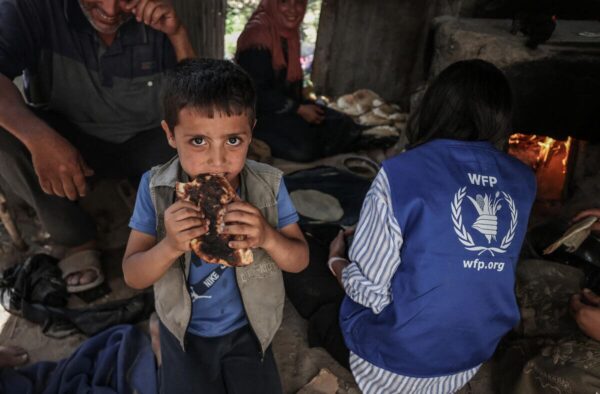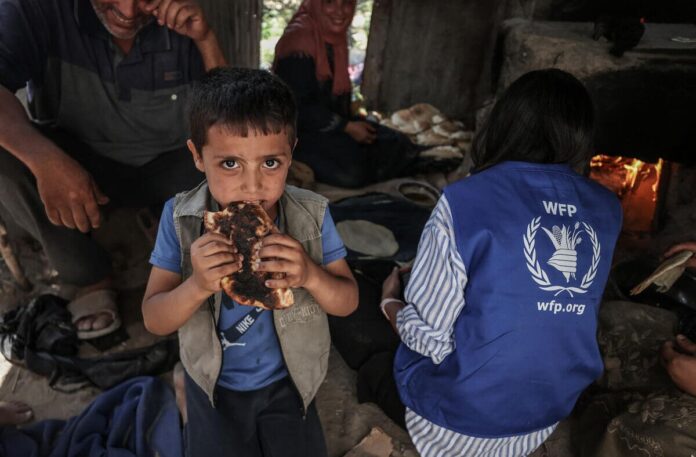GAZA STRIP – A critical United Nations agency has announced that it has completely exhausted its food aid reserves within the Gaza Strip, a devastating consequence of the sustained Israeli blockade on the territory. The dire warning underscores the rapidly escalating humanitarian catastrophe facing the enclave’s 2.3 million residents, who have now endured nearly eight weeks without essential supplies entering.
The World Food Programme (WFP) confirmed the complete depletion of its food stocks on Friday, stating that the last of its supplies had been distributed to already overwhelmed charity kitchens. These kitchens, which have become a vital lifeline for hundreds of thousands of Gazans – in many cases their only source of sustenance – are now expected to run out of food entirely within the coming days.
“Today, WFP delivered its last remaining food stocks to hot meals kitchens in the Gaza Strip,” the agency said in a stark statement. “These kitchens are expected to fully run out of food in the coming days.”
Israel has maintained a strict blockade on the Gaza Strip since March 2nd, effectively cutting off all deliveries of food, fuel, medicine, and other essential humanitarian supplies. Israeli authorities allege that Hamas, the ruling faction in Gaza, is diverting aid for its own purposes, a claim vehemently denied by the group and humanitarian organizations who maintain strict monitoring protocols.

Image source: wfpusa.org
The closure of all border crossings marks the longest uninterrupted blockade Gaza has faced since the imposition of restrictions years ago. The impact on the civilian population has been catastrophic. The WFP reports that food prices have skyrocketed by as much as 1400% compared to levels during a brief ceasefire earlier this year, rendering even basic necessities unaffordable for most families. Essential commodities like meat, dairy, fresh fruits, and many vegetables have vanished from the markets.
The UN agency further warned of a severe lack of safe water and fuel for cooking, forcing desperate Gazans to scavenge for materials to burn in order to prepare meager meals. This situation has led to a surge in malnutrition, with the UN reporting a significant increase in cases of acute malnutrition among children.
“The situation inside the Gaza Strip has once again reached a breaking point: people are running out of ways to cope,” the WFP cautioned, urging all parties to “prioritize the needs of civilians and allow aid to enter Gaza immediately and uphold their obligations under international humanitarian law.”
Adding to the urgency, the WFP noted that over 116,000 metric tons of food aid – enough to feed a million people for four months – are currently waiting at the border crossings, unable to enter the territory due to the ongoing blockade.
The international community has increasingly voiced its condemnation of the blockade, with rights groups labeling it a form of collective punishment and a potential war crime. Calls for Israel to immediately allow the unimpeded flow of humanitarian aid into Gaza have grown louder from numerous nations and international organizations.
The complete depletion of UN food aid marks a new and perilous phase in the Gaza crisis, raising the specter of widespread famine and further suffering for a population already reeling from months of conflict and deprivation. The coming days will be critical in determining whether international pressure can compel a change in policy and avert an even greater humanitarian disaster in the besieged enclave.
